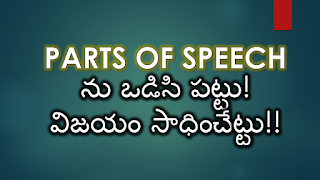Mastering the Building Blocks of Words: All About Affixes
The Two Main Affix All-Stars:
-
Prefixes: These guys like to be at the forefront, appearing before the root word (the main part of the word) and influencing its meaning. For example, the prefix "un-" in "unhappy" negates the meaning of "happy." Here are some more prefixes in action:
- re-: redo, rewrite (means "to do again")
- dis-: disagree, dislike (means "not" or "opposite of")
- pre-: preview, predict (means "before")
-
Suffixes: These affix aficionados prefer hanging out at the end of words. They can modify the meaning, tense, or part of speech of the root word. Let's see some suffixes at work:
- -ly: quickly, slowly (turns adjectives into adverbs)
- -ment: development, excitement (creates nouns from verbs)
- -ed: played, jumped (indicates past tense)
- -er: bigger, faster (creates comparatives)
The Power of Plurals and More:
Suffixes aren't just about meaning changes. They play a crucial role in grammar too. For instance, the suffix "-s" or "-es" helps us form plurals (book becomes books). Additionally, suffixes like "-ing" (working) and "-ed" (helped) are essential for verb conjugation.
Bonus Tip: Stacking Affixes!
The beauty of affixes is that they can work together. Imagine building a word like "predetermine" - "pre-" comes first, then "determine," and finally the "-ed" suffix. This allows us to create a wide range of vocabulary with just a handful of affixes.
Learning affixes is like learning a secret code to unlock a vast world of words. By understanding these tiny building blocks, you'll not only strengthen your vocabulary but also gain a deeper appreciation for the magic of language!
- re-: again (rewrite, rebuild)
- un-: not, opposite of (unhappy, unlock)
- dis-: not, opposite of (disagree, dislike)
- pre-: before (preview, predict)
- im-: not (impossible, imperfect)
- in-: not (inactive, incorrect)
- over-: too much, beyond (overcome, overload)
- under-: not enough, below (underline, underwater)
- anti-: against (anti-virus, anti-social)
- bi-: two (bicycle, bilingual)
- de-: remove (defrost, decaffeinate)
- trans-: across (transfer, translate)
- -ly: manner (quickly, clearly)
- -ment: state, action (development, excitement)
- -ed: past tense (played, jumped)
- -ing: present participle (working, singing)
- -er: comparative (bigger, faster)
- -est: superlative (biggest, fastest)
- -s: plural (cats, dogs)
- -es: plural (after words ending in s, sh, ch, x) (churches, boxes)
- -tion: action, state (creation, suggestion)
- -ity: quality, state (capacity, clarity)
- -ful: full of (hopeful, peaceful)
- -less: without (helpless, careless)
- -able: capable of (portable, reliable)
- -ist: person who does something (dentist, artist)
- -ate: to make (activate, decorate)
NOW YOU CAN TAKE A QUIZ HERE 👇👇👇👇
Mastering the Building Blocks of Words: All About Affixes
The Two Main Affix All-Stars:
-
Prefixes: These guys like to be at the forefront, appearing before the root word (the main part of the word) and influencing its meaning. For example, the prefix "un-" in "unhappy" negates the meaning of "happy." Here are some more prefixes in action:
- re-: redo, rewrite (means "to do again")
- dis-: disagree, dislike (means "not" or "opposite of")
- pre-: preview, predict (means "before")
-
Suffixes: These affix aficionados prefer hanging out at the end of words. They can modify the meaning, tense, or part of speech of the root word. Let's see some suffixes at work:
- -ly: quickly, slowly (turns adjectives into adverbs)
- -ment: development, excitement (creates nouns from verbs)
- -ed: played, jumped (indicates past tense)
- -er: bigger, faster (creates comparatives)
The Power of Plurals and More:
Suffixes aren't just about meaning changes. They play a crucial role in grammar too. For instance, the suffix "-s" or "-es" helps us form plurals (book becomes books). Additionally, suffixes like "-ing" (working) and "-ed" (helped) are essential for verb conjugation.
Bonus Tip: Stacking Affixes!
The beauty of affixes is that they can work together. Imagine building a word like "predetermine" - "pre-" comes first, then "determine," and finally the "-ed" suffix. This allows us to create a wide range of vocabulary with just a handful of affixes.
Learning affixes is like learning a secret code to unlock a vast world of words. By understanding these tiny building blocks, you'll not only strengthen your vocabulary but also gain a deeper appreciation for the magic of language!
- re-: again (rewrite, rebuild)
- un-: not, opposite of (unhappy, unlock)
- dis-: not, opposite of (disagree, dislike)
- pre-: before (preview, predict)
- im-: not (impossible, imperfect)
- in-: not (inactive, incorrect)
- over-: too much, beyond (overcome, overload)
- under-: not enough, below (underline, underwater)
- anti-: against (anti-virus, anti-social)
- bi-: two (bicycle, bilingual)
- de-: remove (defrost, decaffeinate)
- trans-: across (transfer, translate)
- -ly: manner (quickly, clearly)
- -ment: state, action (development, excitement)
- -ed: past tense (played, jumped)
- -ing: present participle (working, singing)
- -er: comparative (bigger, faster)
- -est: superlative (biggest, fastest)
- -s: plural (cats, dogs)
- -es: plural (after words ending in s, sh, ch, x) (churches, boxes)
- -tion: action, state (creation, suggestion)
- -ity: quality, state (capacity, clarity)
- -ful: full of (hopeful, peaceful)
- -less: without (helpless, careless)
- -able: capable of (portable, reliable)
- -ist: person who does something (dentist, artist)
- -ate: to make (activate, decorate)






